The Role of Recycling in Sustainable Development
In today's world, where environmental challenges are escalating at an alarming rate, the importance of recycling cannot be overstated. Recycling is not just a trend; it is a critical component of sustainable development that impacts our planet, economy, and society. By reprocessing materials to create new products, we can significantly reduce waste and conserve valuable resources. Imagine a world where waste is minimized, natural habitats are preserved, and communities thrive economically and socially. This vision can become a reality through the power of recycling.
Recycling serves as a bridge between our consumption habits and environmental responsibility. It encompasses various types of materials, including paper, plastics, metals, and glass, each playing a unique role in promoting sustainability. For instance, when we recycle aluminum cans, we save up to 95% of the energy required to produce new cans from raw materials. This not only conserves energy but also reduces the demand for mining and processing, which can be detrimental to the environment.
Furthermore, the recycling process is not just about the act itself; it involves a complex system of collection, processing, and distribution that requires community involvement and awareness. As we dive deeper into the environmental, economic, and social benefits of recycling, it becomes clear that adopting sustainable practices is essential for a brighter future. The journey towards sustainability is not a solitary endeavor; it requires collective action, innovative solutions, and a commitment to changing our habits. So, let’s explore the fascinating world of recycling and its undeniable role in sustainable development!
Recycling is a multifaceted process that involves transforming waste materials into new products. It reduces the amount of waste sent to landfills and conserves natural resources, making it a cornerstone of sustainable development. There are several types of recycling, including:
- Mechanical Recycling: This involves physically processing materials, such as grinding plastics or shredding paper, to create new products.
- Chemical Recycling: This process breaks down materials at a molecular level, allowing for the recovery of raw materials that can be reused.
- Organic Recycling: Also known as composting, this method involves converting organic waste into nutrient-rich compost for soil enrichment.
Each of these recycling methods plays a significant role in promoting sustainability by reducing the extraction of raw materials and minimizing environmental degradation. Understanding the different types of recycling helps us appreciate the intricate web of processes that contribute to a more sustainable future.
The environmental benefits of recycling are profound and far-reaching. By reducing the volume of waste sent to landfills, recycling helps to conserve precious resources and protect our ecosystems. One of the most significant advantages is the reduction of landfill waste, which can lead to lower greenhouse gas emissions. When organic waste decomposes in landfills, it produces methane, a potent greenhouse gas that contributes to climate change. By recycling, we can divert materials from landfills and mitigate these harmful emissions.
Recycling is a powerful tool for waste reduction. By reusing materials, we can significantly decrease the amount of waste that ends up in landfills. This is not just about saving space; it's about preserving our environment for future generations. When we recycle, we are not only reducing waste but also conserving energy and resources. For instance, recycling one ton of paper can save 17 trees, 7,000 gallons of water, and 4,100 kilowatts of electricity. These savings highlight the importance of waste reduction through recycling.
Diverting materials from landfills through recycling has a positive impact on ecosystems. When we reduce the amount of waste sent to landfills, we are also protecting wildlife habitats and reducing the risk of soil and water contamination. The benefits of landfill diversion extend beyond just waste management; they contribute to a healthier planet.
Recycling also plays a crucial role in pollution control. By decreasing the need for new raw materials, recycling reduces air and water pollution associated with extraction and processing. For example, recycling metals can save up to 95% of the energy required to produce new metals from ore, resulting in significantly lower emissions. This is a win-win situation for both the environment and public health.
Resource conservation is another vital aspect of recycling. By reusing materials, we reduce the demand for new resources, which helps to preserve our planet's finite resources. This conservation effort supports sustainable development by ensuring that future generations have access to the materials they need. Every time we recycle, we are making a conscious choice to protect our environment and promote sustainability.
The recycling industry is not just an environmental necessity; it is also an economic powerhouse that generates jobs and stimulates growth. In fact, the recycling sector has proven to be a significant contributor to local economies. By investing in recycling initiatives, municipalities and businesses can achieve substantial cost savings while fostering a sustainable economy.
Recycling creates numerous job opportunities across various sectors, from collection to processing. These jobs are essential for building a robust economy and providing livelihoods for many individuals. The recycling industry employs thousands of people, and as the demand for sustainable practices grows, so does the potential for job creation.
Investing in recycling can lead to significant cost savings for municipalities and businesses. By reducing waste disposal costs and generating revenue from recycled materials, communities can allocate resources more effectively. This economic benefit highlights the importance of recycling not just as an environmental initiative but as a strategic economic decision.
Beyond environmental and economic benefits, recycling promotes community engagement and social responsibility. It fosters a sense of belonging and shared purpose among community members, encouraging them to take part in sustainable practices. When people come together to support recycling initiatives, they create a culture of sustainability that can have lasting effects.
Engaging communities in recycling initiatives fosters a sense of responsibility and awareness about sustainability issues. Community participation is crucial for the success of recycling programs. When individuals feel connected to their environment, they are more likely to take action and advocate for sustainable practices.
Education plays a vital role in promoting recycling practices and sustainability. Awareness campaigns can encourage responsible recycling behavior, helping individuals understand the impact of their choices. By educating communities about the benefits of recycling, we can inspire a new generation of environmentally conscious citizens.
Q: What materials can be recycled?
A: Commonly recycled materials include paper, plastics, metals, and glass. However, it’s essential to check local guidelines as recycling capabilities can vary by region.
Q: How does recycling help the economy?
A: Recycling creates jobs, reduces waste disposal costs, and generates revenue from selling recycled materials, contributing to economic growth.
Q: What can I do to promote recycling in my community?
A: You can participate in local recycling programs, educate others about the benefits of recycling, and advocate for better recycling policies.

Understanding Recycling
Recycling is more than just a buzzword; it's a vital process that involves reprocessing materials to create new products. Think of it as giving a second life to items that would otherwise end up in landfills, which is a win-win for both our planet and our communities. By recycling, we not only reduce waste but also conserve precious resources that are becoming increasingly scarce. This practice can take many forms, from the familiar blue bins we see on our curbsides to more complex industrial processes that transform materials like metals, plastics, and paper into new goods.
There are various types of recycling, each playing a unique role in promoting sustainability. For instance, curbside recycling allows households to easily contribute to recycling efforts by separating their waste. Then we have industrial recycling, where manufacturers reclaim materials from their production processes. Additionally, composting is a form of recycling that takes organic waste and turns it into nutrient-rich soil, benefiting our gardens and reducing the amount of waste sent to landfills.
Understanding the significance of recycling in our daily lives is crucial. It’s not just about throwing items in a bin; it’s about recognizing the impact of our choices. When we recycle, we contribute to a circular economy where resources are reused and repurposed, minimizing the need for new materials. This not only helps in reducing the environmental footprint but also supports local economies by creating jobs in the recycling sector. In fact, the recycling industry is a dynamic field, constantly evolving to meet the challenges of waste management and resource conservation.
But why should we care? The answer lies in the long-term benefits that recycling provides. It’s like planting a seed today for a greener tomorrow. When we engage in recycling, we’re investing in a sustainable future for ourselves and the generations to come. So, the next time you toss a bottle in the recycling bin, remember that you’re not just getting rid of waste; you’re participating in a larger movement towards sustainability.

Environmental Benefits
When we talk about recycling, it’s not just about tossing your plastic bottles into the blue bin; it’s about making a significant impact on our planet. Recycling plays a crucial role in minimizing our environmental footprint, and the benefits are astounding. By embracing recycling, we can tackle some of the most pressing environmental challenges we face today. Let’s dive deeper into how recycling contributes to a healthier planet.
One of the most significant advantages of recycling is its ability to reduce landfill waste. Imagine a world where our landfills are overflowing, not just with trash, but with valuable resources that could have been reused. By recycling materials like paper, glass, and metals, we can significantly decrease the volume of waste sent to landfills. This not only conserves space but also helps in lowering greenhouse gas emissions, which are notorious for contributing to climate change. The less waste we send to landfills, the better it is for our environment.
Waste reduction is a critical component of recycling. Every item we recycle is one less item that ends up in a landfill. Think about it: when we recycle, we’re not just reducing the amount of garbage we produce; we’re also conserving the land that would otherwise be used for waste disposal. This process is vital for managing waste effectively and protecting our ecosystems. Consider the following:
- Every ton of paper recycled saves approximately 17 trees.
- Recycling aluminum cans saves 95% of the energy required to create new cans from raw materials.
- For every 1 million plastic bottles recycled, we save enough energy to power a home for a year.
These statistics highlight just how impactful recycling can be. Not only does it help in reducing waste, but it also fosters a sustainable approach to resource management.
By diverting materials from landfills through recycling, we not only manage waste more effectively but also protect our precious ecosystems. When waste decomposes in landfills, it generates methane, a potent greenhouse gas that contributes to global warming. By recycling, we can significantly reduce the amount of waste that ends up in landfills, thereby minimizing methane emissions and their harmful effects on our atmosphere. It’s like giving our planet a much-needed breather!
Recycling also plays a pivotal role in pollution control. The production of new raw materials often leads to significant air and water pollution due to the extraction and processing involved. When we recycle, we reduce the need for these new materials, which in turn decreases the pollution associated with their production. For example, recycling metals means less mining, which is known to cause habitat destruction and pollution. By choosing to recycle, we are not just cleaning up our own mess; we are taking proactive steps to protect wildlife and natural habitats.
In summary, the environmental benefits of recycling are vast and far-reaching. From reducing landfill waste and conserving natural resources to controlling pollution and protecting ecosystems, recycling is a powerful tool in our fight for a sustainable future. As individuals, we have the power to make a difference, and by incorporating recycling into our daily lives, we can contribute to a cleaner, greener planet for generations to come.
Q: What materials can be recycled?
A: Most common recyclable materials include paper, cardboard, glass, metals, and certain types of plastics. Always check local guidelines for specifics.
Q: How does recycling help reduce pollution?
A: Recycling reduces the need for new raw materials, which decreases the pollution associated with extraction and processing. This leads to cleaner air and water.
Q: Can recycling really make a difference?
A: Yes! Every item recycled contributes to waste reduction, resource conservation, and pollution control, making a significant positive impact on the environment.
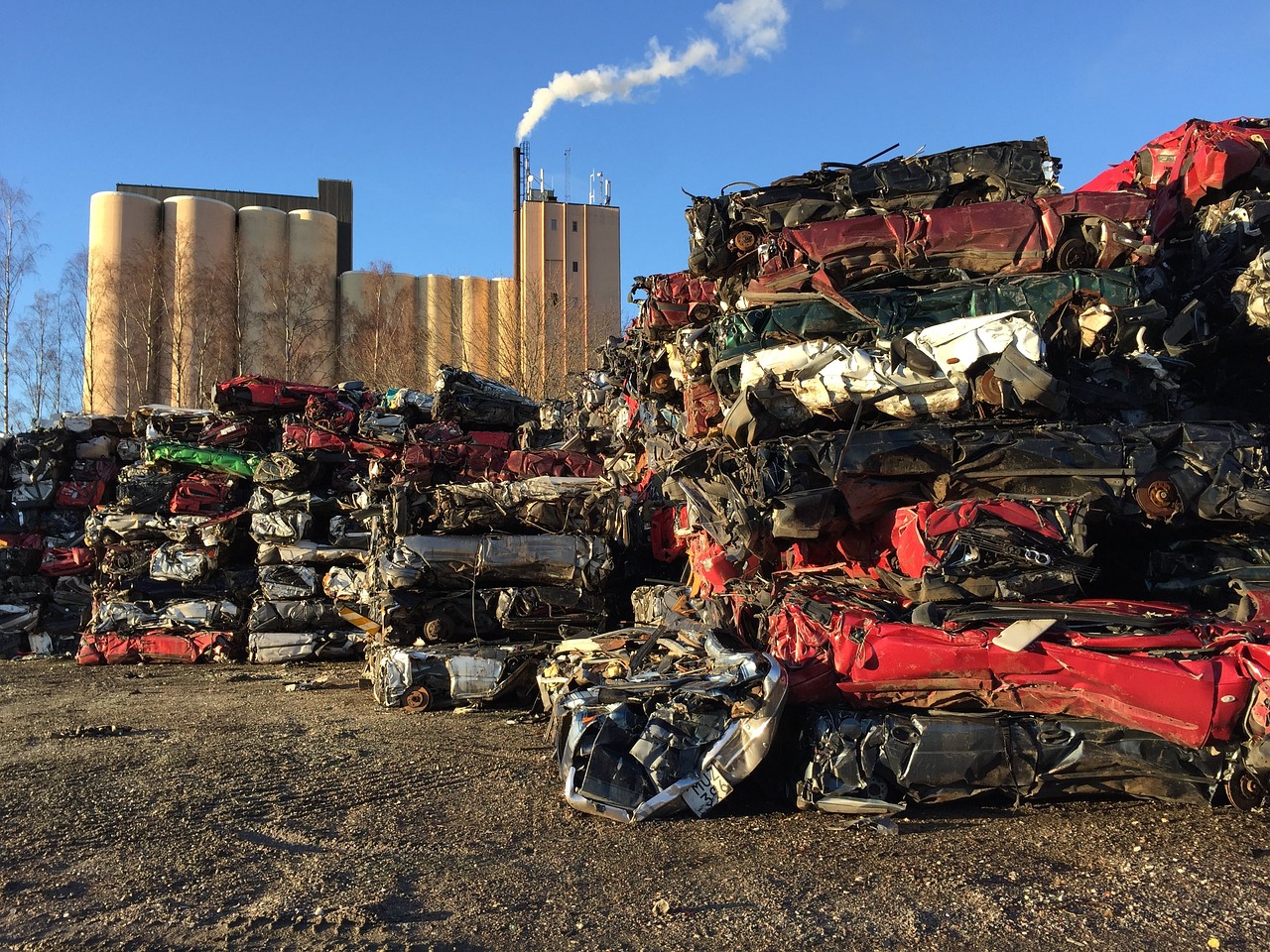
Waste Reduction
When we think about waste reduction, it's like realizing that we can turn our trash into treasure. Recycling is a powerful tool in this transformative process, allowing us to significantly decrease the amount of waste that ends up in landfills. Imagine a world where our landfills are not overflowing with discarded materials; instead, they are thriving ecosystems, free from the burden of our waste. By recycling, we can achieve this vision and make a tangible impact on our environment.
Every item we recycle means one less item contributing to the ever-growing mountains of waste. In fact, according to the Environmental Protection Agency (EPA), recycling and composting prevented the release of approximately 186 million metric tons of carbon dioxide equivalent into the air in a single year. This is akin to taking 39 million cars off the road! Just think about the difference we can make if we all play our part.
Moreover, waste reduction through recycling leads to a cascade of benefits. It not only conserves valuable resources but also saves energy and reduces greenhouse gas emissions. For instance, recycling aluminum saves about 90% of the energy required to produce new aluminum from raw materials. This is a striking example of how recycling can be a game changer in our fight against climate change.
But how can we effectively reduce waste through recycling? Here are some practical steps you can take:
- Know Your Materials: Different materials have different recycling processes. Familiarize yourself with what can and cannot be recycled in your area.
- Reduce Before You Recycle: The first step in waste management is to reduce your consumption. Buy only what you need and opt for products with minimal packaging.
- Participate in Local Programs: Many communities have recycling programs in place. Get involved and encourage your neighbors to do the same.
As we embrace recycling, we must also recognize its role in landfill diversion. By diverting materials from landfills, we are not just managing waste; we are actively protecting our ecosystems. Landfills can be detrimental to the environment, releasing harmful pollutants into the soil and water. By reducing the volume of waste sent to these sites, we are safeguarding our natural resources and promoting a healthier planet for future generations.
In conclusion, waste reduction through recycling is not just a noble cause; it’s a necessary action that can lead to a cleaner, more sustainable world. The power to change our waste management habits lies in our hands, and every small step counts. So, let’s roll up our sleeves and get to work—our planet is counting on us!
- What materials can be recycled? Most common materials include paper, cardboard, glass, metals, and certain plastics. Always check local guidelines.
- How does recycling help the economy? Recycling creates jobs, stimulates economic growth, and reduces costs for waste management.
- Can recycling really make a difference? Absolutely! Recycling reduces landfill waste, conserves resources, and lowers pollution levels.

Landfill Diversion
When we talk about , we're diving into a crucial aspect of recycling that goes beyond just sorting out your trash. It's about actively redirecting materials away from landfills, where they would otherwise sit for decades, slowly decomposing and releasing harmful gases into our atmosphere. Imagine a world where instead of filling up landfills, we’re repurposing and reusing materials to create new products. This not only conserves our precious land but also protects our ecosystems from the detrimental effects of waste accumulation.
By diverting waste from landfills, we can significantly reduce the amount of space needed for waste disposal. In fact, studies suggest that recycling and composting prevented the release of approximately 186 million metric tons of carbon dioxide equivalent into the air in just one year. That’s like taking 39 million cars off the road! Isn't that a staggering thought? Every item you recycle contributes to this monumental effort, showing that individual actions can lead to significant environmental impacts.
Moreover, landfill diversion plays a pivotal role in protecting biodiversity. When waste is dumped in landfills, it can leach toxic substances into the soil and groundwater, which can harm local wildlife and plants. By recycling, we minimize these risks and help maintain the delicate balance of our ecosystems. For instance, recycling paper reduces the need for logging, which means fewer trees are cut down, leading to healthier forests that can support diverse wildlife.
To visualize the impact of landfill diversion, consider the following table that outlines the benefits of recycling common materials:
| Material | Landfill Diversion Impact | Environmental Benefit |
|---|---|---|
| Plastic | Diverts millions of tons from landfills annually | Reduces ocean pollution and wildlife hazards |
| Paper | Conserves trees and reduces landfill space | Protects forests and decreases carbon emissions |
| Metals | Significantly lowers mining demands | Minimizes habitat destruction and energy consumption |
In summary, landfill diversion is not merely a recycling buzzword; it is a vital strategy in the fight against environmental degradation. By prioritizing recycling and waste diversion, we can create a sustainable future where our landfills are less burdened, our ecosystems are thriving, and our communities are more engaged in the process. So next time you reach for that recycling bin, remember that you’re not just tossing away a bottle or a can—you’re making a conscious choice to protect our planet.
- What is landfill diversion? - Landfill diversion refers to the practice of redirecting waste materials away from landfills through recycling, composting, and other waste management strategies.
- Why is landfill diversion important? - It helps conserve natural resources, reduces pollution, and protects ecosystems by minimizing the amount of waste sent to landfills.
- How can I contribute to landfill diversion? - You can contribute by recycling properly, composting organic waste, and reducing your overall waste generation.

Pollution Control
One of the most pressing challenges we face today is pollution, and recycling stands out as a powerful ally in the fight against it. By reprocessing materials that would otherwise end up in landfills, recycling significantly reduces the demand for new raw materials. This reduction plays a crucial role in minimizing the environmental impact associated with resource extraction and processing, which are often major contributors to air and water pollution.
Consider this: every ton of recycled paper can save approximately 17 trees, 7,000 gallons of water, and 4,100 kilowatts of electricity. That's not just a small victory; it's a substantial leap towards a cleaner environment. When we recycle, we are not only conserving resources but also cutting down on the emissions released during the manufacturing process of new products. For instance, recycling aluminum saves 95% of the energy required to create new aluminum from raw materials. This energy conservation translates directly into fewer greenhouse gas emissions, making our air cleaner and our planet healthier.
Moreover, the benefits of recycling extend beyond just air quality. Water pollution is another significant concern, especially with the runoff from landfills that can contaminate local waterways. Each material we recycle helps prevent toxic substances from leaching into our water systems. For example, recycling batteries prevents heavy metals from polluting our water supply, which can have devastating effects on both human health and aquatic ecosystems.
To illustrate the impact of recycling on pollution control, let’s take a look at the following table:
| Material | Energy Saved by Recycling | Pollution Reduction |
|---|---|---|
| Aluminum | 95% | 90% reduction in air pollution |
| Glass | 30% | 50% reduction in air pollution |
| Paper | 60% | 35% reduction in air pollution |
In summary, recycling is not just about reusing materials; it's a holistic approach to reducing pollution. By choosing to recycle, we take a stand against environmental degradation. Each item recycled is a step towards cleaner air and water, ultimately leading to a healthier planet. So, the next time you toss something in the recycling bin, remember that you’re not just decluttering your space; you’re actively participating in the fight against pollution.
- What types of materials can be recycled? Most common materials include paper, cardboard, glass, metals, and certain plastics. Always check your local recycling guidelines.
- How does recycling help the economy? Recycling creates jobs, reduces waste management costs, and can generate income through the sale of recycled materials.
- Can recycling really make a difference? Absolutely! Every item recycled helps reduce pollution, conserve natural resources, and mitigate climate change.
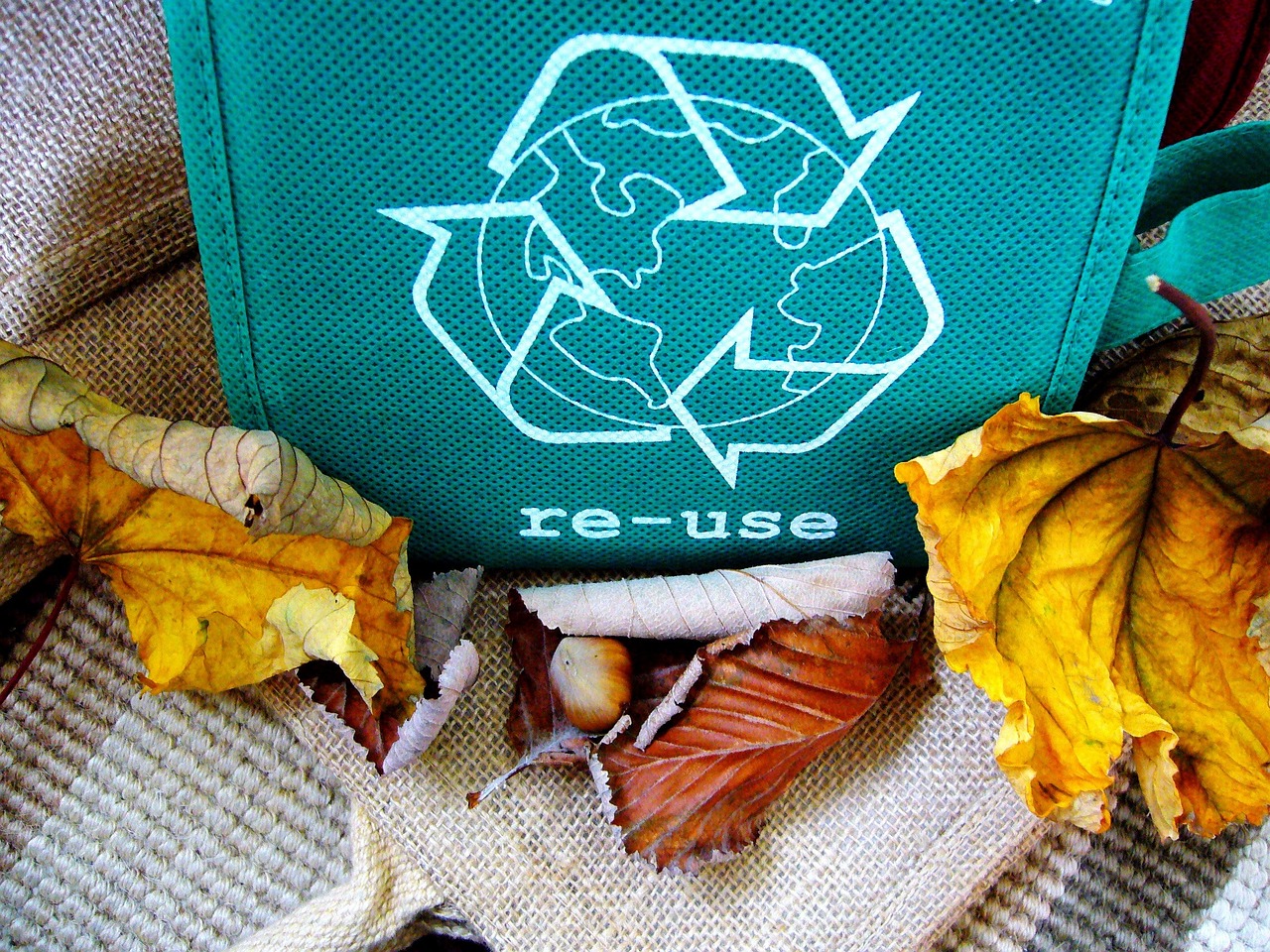
Resource Conservation
Recycling is not just a trendy buzzword; it's a powerful tool that helps us conserve our planet's precious resources. Imagine for a moment a world where materials are endlessly reused, instead of being tossed away like yesterday's news. When we recycle, we are essentially giving materials a second life. This process significantly reduces the demand for new raw materials, which is crucial for the sustainability of our environment. By reusing materials, we not only cut down on the energy required for extraction and processing but also minimize the ecological footprint associated with these activities.
Consider this: every ton of recycled paper can save over 17 trees, conserve 7,000 gallons of water, and keep 4,100 kilowatts of electricity out of the production cycle. These numbers aren't just statistics; they represent real-world impacts that can lead to a healthier planet. When we recycle metals, plastics, and glass, we are also reducing the need for mining and drilling, which can be incredibly destructive to ecosystems and biodiversity. The more we recycle, the less we need to exploit our planet's finite resources.
Furthermore, recycling promotes a circular economy, where materials are continuously cycled through the economy rather than being discarded. This model not only sustains resources but also fosters innovation in product design and manufacturing. Companies are increasingly recognizing the value of designing products with recycling in mind, leading to more sustainable production practices. For instance, brands are now creating products made from recycled materials, which in turn encourages consumers to engage in recycling practices. It’s a win-win situation!
However, achieving effective resource conservation through recycling requires collective effort. Communities, businesses, and governments must work together to create robust recycling programs. Education plays a pivotal role here; when people understand the importance of recycling and how it contributes to resource conservation, they are more likely to participate actively. Awareness campaigns can help bridge the gap between knowledge and action, making recycling a part of daily life.
In conclusion, the impact of recycling on resource conservation is profound. By embracing recycling as a fundamental practice, we can significantly reduce our consumption of natural resources, lower energy usage, and protect ecosystems. The path to sustainable development is paved with the commitment to recycle and reuse, ensuring that our planet remains vibrant for generations to come.
- What materials can be recycled? Most common recyclables include paper, cardboard, glass, metals, and certain plastics. Always check your local recycling guidelines.
- How does recycling benefit the economy? Recycling creates jobs, reduces waste management costs, and fosters innovation in sustainable practices.
- Can recycling really make a difference? Yes! Recycling helps conserve resources, reduces pollution, and minimizes landfill waste, leading to a healthier environment.
- What can I do to promote recycling in my community? Start by educating yourself and others, participating in local recycling programs, and advocating for better recycling initiatives.
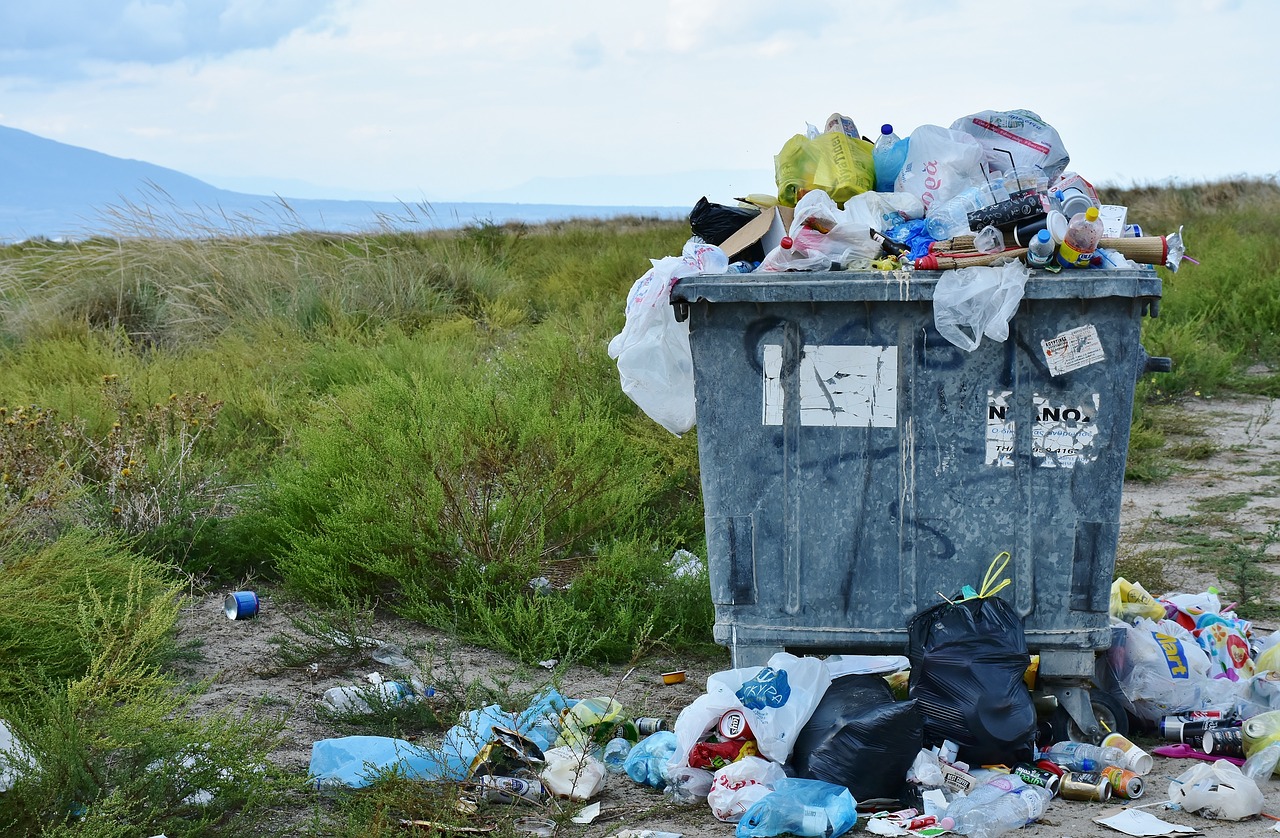
Economic Advantages
The economic advantages of recycling are as significant as they are varied. At its core, recycling not only helps the environment but also stimulates the economy in profound ways. Imagine a bustling marketplace where resources are continually reused and repurposed; this is the essence of a thriving recycling industry. It creates a ripple effect that benefits various sectors, enhances job opportunities, and leads to cost savings for communities and businesses alike.
One of the most notable economic benefits of recycling is job creation. The recycling sector is a powerhouse for employment, providing numerous jobs across different stages of the recycling process. From collection and sorting to processing and manufacturing, the industry requires a diverse workforce. According to recent studies, the recycling industry supports over 1.1 million jobs in the United States alone. This includes positions in:
- Material recovery facilities
- Recycling collection services
- Manufacturing companies that use recycled materials
- Research and development of recycling technologies
Furthermore, recycling initiatives have a significant impact on local economies. By investing in recycling programs, municipalities can reduce their waste management costs. This is particularly important as landfill space becomes increasingly scarce and expensive. For instance, cities that have implemented comprehensive recycling programs have reported savings in waste disposal fees, which can be redirected towards other essential services such as education and public safety.
Another economic advantage of recycling lies in cost savings for businesses. Companies that adopt recycling practices can reduce their operational costs by minimizing waste disposal fees and lowering the expenses associated with raw material procurement. By reusing materials, businesses can also enhance their sustainability profile, which is increasingly important in today’s eco-conscious market. Companies that are seen as environmentally responsible often enjoy a competitive edge, attracting customers who prioritize sustainability.
To illustrate the financial benefits of recycling, consider the following table that outlines the cost savings associated with various recyclable materials:
| Material | Cost Savings per Ton |
|---|---|
| Aluminum | $1,200 |
| Paper | $400 |
| Plastic | $300 |
| Glass | $200 |
As seen in the table, recycling aluminum can lead to substantial savings, making it a prime target for recycling initiatives. These savings not only benefit individual businesses but also contribute to the overall economic health of communities.
In summary, the economic advantages of recycling extend far beyond just reducing waste. By creating jobs, saving costs, and fostering a sustainable economy, recycling serves as a cornerstone of economic development. It’s a win-win situation: the environment benefits, and so does our economy. So, the next time you toss a bottle or a can into the recycling bin, remember that you’re not just helping the planet; you’re also supporting local jobs and contributing to a more sustainable future.
1. How does recycling create jobs?
Recycling creates jobs through various processes, including collection, sorting, processing, and manufacturing. Each step in the recycling chain requires a workforce, thereby generating employment opportunities across different sectors.
2. What are the economic benefits of recycling for businesses?
Businesses that engage in recycling can save on waste disposal costs and reduce the expenses associated with purchasing new raw materials. This not only leads to cost savings but also enhances their sustainability profile, attracting eco-conscious consumers.
3. How can municipalities benefit financially from recycling?
Municipalities can benefit financially from recycling by lowering waste disposal fees and reallocating those savings to other essential services. Comprehensive recycling programs can also stimulate local economies by creating jobs and encouraging sustainable practices.

Job Creation
When we talk about recycling, it's not just about saving the planet; it's also about creating a vibrant job market. The recycling industry is a powerhouse for employment, generating a multitude of job opportunities across various sectors. From the moment recyclable materials are collected to the intricate processes that transform these materials into new products, each step in the recycling chain requires skilled labor. Think of it as a bustling ecosystem where every role, no matter how small, contributes to a greater purpose.
Consider this: according to the EPA, recycling and reuse activities in the United States alone account for over 1.1 million jobs and generate more than $236 billion in revenue. This staggering statistic illustrates just how vital recycling is to our economy. Not only does it provide jobs directly in recycling facilities, but it also creates indirect jobs in related sectors such as transportation, manufacturing, and retail. For instance, when recycled materials are processed, they need to be transported, which means more jobs for truck drivers and logistics experts.
Moreover, the potential for job creation doesn't stop there. As more companies and municipalities prioritize recycling initiatives, the demand for innovative recycling technologies is growing. This leads to the emergence of new businesses focused on developing sustainable practices, which in turn creates even more job opportunities. Imagine a future where cities are not only cleaner but also bustling with jobs in green technologies and sustainable practices. It's a win-win situation!
In addition to the economic benefits, recycling jobs often come with the added advantage of being more sustainable than traditional jobs. Many recycling facilities focus on creating a positive work environment, ensuring that employees are not just workers but also stewards of the planet. This can lead to higher job satisfaction and retention rates. When people feel they are making a difference, they are more likely to stay engaged and committed to their roles.
In summary, the recycling industry is a significant player in job creation, offering a variety of roles that contribute to a sustainable economy. Whether it's through direct employment in recycling facilities or indirect roles in transportation and technology development, the impact of recycling on job creation is profound. As we continue to embrace recycling as a key component of sustainable development, we can expect to see even more opportunities arise, benefiting both our economy and our environment.
- What types of jobs are available in the recycling industry? The recycling industry offers a range of jobs, including collection drivers, sorting facility workers, equipment operators, and recycling coordinators.
- How does recycling create jobs? Recycling creates jobs by requiring labor for collection, processing, and selling recycled materials, as well as supporting related industries.
- Are recycling jobs sustainable? Yes! Many recycling jobs focus on sustainable practices, contributing to both job satisfaction and environmental stewardship.
- What is the economic impact of recycling? Recycling generates significant revenue and jobs, contributing billions to the economy while promoting sustainable practices.
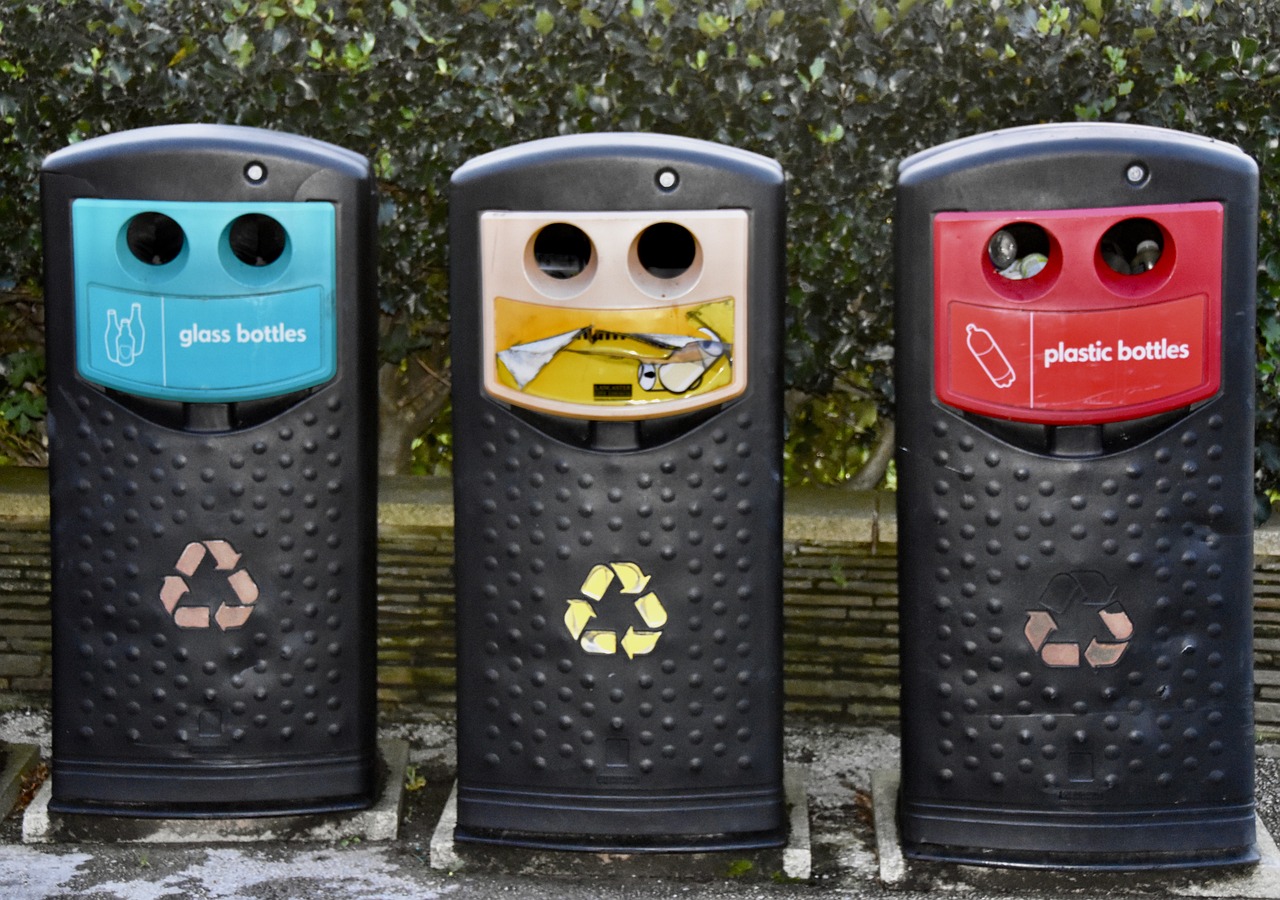
Cost Savings
When we think about recycling, many of us might picture sorting our plastics and paper, but the benefits extend far beyond just being eco-friendly. One of the most compelling aspects of recycling is the significant it can generate for municipalities, businesses, and even households. Imagine a world where your community not only reduces its waste but also saves money in the process. Sounds like a win-win, right?
For municipalities, recycling programs can lead to lower waste management costs. When less waste is sent to landfills, it translates to reduced tipping fees, which are the charges for disposing of waste. According to a study by the Environmental Protection Agency (EPA), cities that implemented robust recycling programs saw a decrease in waste disposal costs by up to 30%. This means that the money saved can be redirected towards other essential services like education, healthcare, or infrastructure improvements.
Businesses, too, can reap the financial rewards of recycling. By incorporating recycling practices into their operations, companies can reduce their waste disposal expenses and even generate revenue from recyclable materials. For instance, a manufacturing company that recycles scrap metal can turn what was once considered waste into a source of income. In fact, many businesses report that recycling not only saves them money but also enhances their brand image as environmentally responsible entities, which can attract more customers.
Let's break it down further with a simple table showcasing potential cost savings for different sectors:
| Sector | Potential Savings | Additional Benefits |
|---|---|---|
| Municipalities | Up to 30% | Improved public services |
| Businesses | Varies by industry | Enhanced brand image |
| Households | Annual savings on waste disposal | Lower utility bills |
On a smaller scale, households can also benefit from recycling. By reducing the amount of waste they produce, families can lower their garbage collection costs. Some waste management companies even offer discounts for households that actively participate in recycling programs. Plus, when you think about it, recycling can also lead to through reduced purchases. For example, reusing glass jars for storage or composting kitchen scraps can minimize the need to buy new products.
In conclusion, the financial benefits of recycling are substantial and multi-faceted. From reducing municipal waste management costs to providing businesses with new revenue streams, recycling is not just an environmental imperative but also a smart economic strategy. As we continue to embrace sustainable practices, the question remains: why wouldn’t we want to save money while saving the planet?
- What are the main benefits of recycling? Recycling helps reduce waste, conserves natural resources, and can lead to significant cost savings for communities and businesses.
- How does recycling save money for municipalities? By diverting waste from landfills, municipalities can lower their disposal costs and redirect funds to other essential services.
- Can recycling really benefit my household? Yes! By recycling, you can reduce your waste disposal costs and save money on new products through reusing materials.
- What materials can I recycle to maximize savings? Common recyclable materials include paper, plastics, metals, and glass. Each material has its own recycling value that can contribute to savings.

Social Impact
Recycling is not just a task relegated to the realm of environmentalists; it is a powerful catalyst for social change. When communities engage in recycling initiatives, they foster a sense of responsibility and collective action that extends beyond just waste management. Imagine a neighborhood where everyone is actively participating in recycling programs—this creates a vibrant community spirit that can lead to greater awareness of sustainability issues and environmental stewardship. By getting involved, citizens become more conscious of their consumption habits and the impact they have on the planet.
Moreover, recycling initiatives often serve as a platform for education and awareness. Schools, local governments, and non-profit organizations can collaborate to create workshops and programs that teach individuals about the importance of recycling. These programs can cover various topics, such as:
- The benefits of recycling for the environment
- How to properly sort recyclable materials
- Innovative recycling practices and technologies
When communities are informed, they are empowered to make better decisions that align with sustainable development goals. This educational aspect is crucial because it not only helps individuals understand their role in the recycling process but also encourages them to take action. The ripple effect of this awareness can lead to increased participation in local recycling programs, creating a culture of sustainability.
Furthermore, community involvement in recycling can lead to social cohesion. When people come together for a common cause, it fosters relationships and strengthens community bonds. Local cleanup events or recycling drives can transform into social gatherings where neighbors meet, share ideas, and work collaboratively. This not only enhances community spirit but also creates a support network that encourages continued engagement in sustainability efforts.
However, it’s essential to recognize that the social impact of recycling extends beyond local communities. On a larger scale, recycling can contribute to social equity. For instance, many recycling programs create job opportunities for marginalized groups, providing them with stable employment and a chance to contribute to their communities. The recycling industry is diverse, encompassing various roles from collection to processing, and it can serve as a viable pathway for economic empowerment.
To sum it up, the social impact of recycling is multifaceted and significant. It promotes community engagement, fosters education and awareness, and can lead to economic opportunities for many. By investing in recycling initiatives, we are not only addressing environmental concerns but also building stronger, more resilient communities.
Q1: How can I get my community involved in recycling?
A1: Start by organizing local events, such as recycling drives or educational workshops, and partner with local organizations to spread the word. Encourage schools to include recycling education in their curriculum.
Q2: What are some effective ways to promote recycling awareness?
A2: Utilize social media campaigns, community newsletters, and local events to share information about the benefits of recycling. Engaging visuals and success stories can also inspire others to participate.
Q3: How does recycling contribute to social equity?
A3: Recycling programs can create job opportunities for marginalized communities, providing them with stable employment and a chance to actively participate in their local economies.

Community Involvement
Community involvement in recycling initiatives is not just a trend; it's a vital part of fostering a sustainable future. When communities come together to promote recycling, they create a ripple effect that can lead to significant environmental and social benefits. Think of it like planting a seed; with the right care and attention, it can grow into a thriving tree that provides shade and fruit for everyone. Engaging local residents in recycling efforts cultivates a sense of responsibility and ownership over their environment, making them more likely to participate actively in sustainability practices.
One of the most effective ways to encourage community involvement is through educational programs. These programs can take various forms, including workshops, seminars, and even fun community events like recycling drives or clean-up days. By educating residents about the importance of recycling and how to do it effectively, communities can foster a culture of sustainability. For instance, when people understand the impact of their waste on the environment, they're more likely to adopt eco-friendly habits. Imagine a neighborhood where everyone is motivated to recycle; it not only reduces waste but also enhances community spirit.
Moreover, partnerships between local governments and community organizations can amplify these efforts. By working together, they can create targeted campaigns that resonate with local values and concerns. For example, a campaign focused on reducing plastic waste might involve local businesses in promoting reusable bags, while schools could implement recycling programs that teach students the importance of sustainability. This collaborative approach ensures that the message reaches a wider audience and reinforces the idea that everyone has a role to play in protecting the environment.
To illustrate the impact of community involvement in recycling, consider the following table showcasing successful community recycling programs:
| Community | Program | Results |
|---|---|---|
| Greenfield | Annual Recycling Festival | Increased recycling rates by 30% |
| Sunnyvale | School Recycling Challenge | Engaged 80% of local schools, reduced waste by 25% |
| Riverdale | Neighborhood Clean-Up Days | Collected over 500 pounds of recyclables in one day |
As you can see from the table, these community initiatives not only make a measurable difference but also inspire others to get involved. When people witness the tangible results of their efforts, it ignites a sense of pride and accomplishment. It's a beautiful cycle: the more people participate, the more successful the programs become, leading to even greater community engagement.
In conclusion, community involvement in recycling is essential for building a sustainable future. By fostering education, creating partnerships, and showcasing successful initiatives, communities can inspire individuals to take action. After all, when we work together, we can achieve remarkable things. So, let's roll up our sleeves, get involved, and make our communities cleaner, greener, and more sustainable for generations to come!
- Why is community involvement important for recycling?
Community involvement ensures that individuals feel connected to their environment, fostering a sense of responsibility and encouraging sustainable practices. - How can I get involved in my community's recycling efforts?
Look for local organizations or government initiatives that promote recycling. You can also volunteer for clean-up events or educational workshops. - What are some effective ways to educate my community about recycling?
Organize workshops, create informative flyers, or host community events to raise awareness and provide practical tips on recycling.
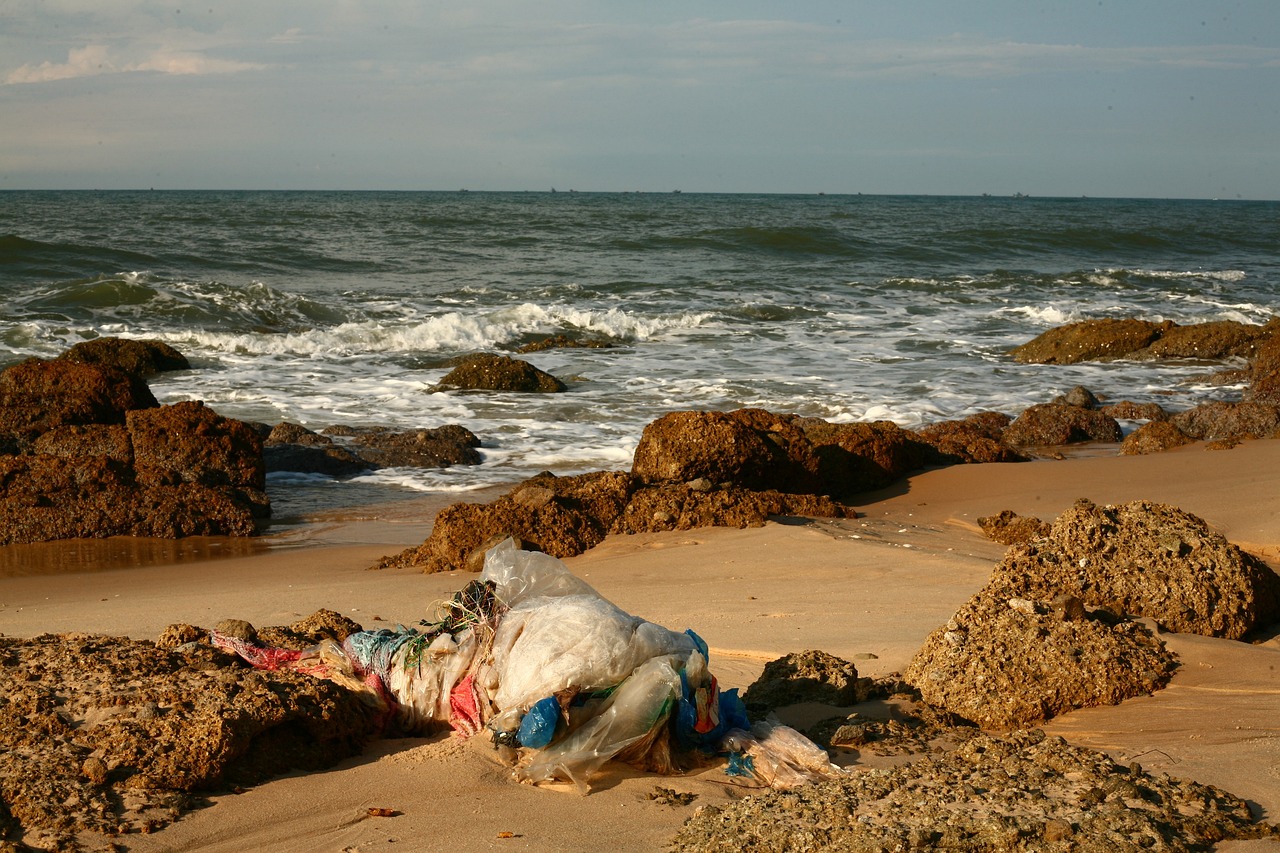
Education and Awareness
Education and awareness are the cornerstones of effective recycling practices and sustainability. Imagine a world where everyone understands the importance of recycling and actively participates in it; the positive impact would be monumental! Unfortunately, many people are still unaware of how their everyday actions contribute to environmental degradation. This is where education steps in, serving as a powerful tool to bridge the knowledge gap. By implementing comprehensive educational programs, communities can foster a culture of recycling that permeates every aspect of life.
One effective strategy is to integrate recycling education into school curriculums. When children learn about the significance of recycling at a young age, they are more likely to carry these values into adulthood. Schools can conduct engaging workshops, interactive sessions, and even field trips to recycling facilities, allowing students to see firsthand the recycling process. This hands-on experience can ignite a passion for sustainability, turning students into advocates for change within their families and communities.
Moreover, community workshops and local events can serve as platforms to raise awareness among adults. These events can cover various topics, such as how to properly sort recyclables, the environmental benefits of recycling, and innovative recycling techniques. For instance, a local community center might host a monthly seminar where experts discuss the latest in recycling technology or share success stories from other communities. This not only educates but also inspires individuals to take action.
Social media also plays a crucial role in spreading awareness. Platforms like Facebook, Instagram, and Twitter can be utilized to share informative content, tips, and success stories related to recycling. A simple post highlighting the benefits of recycling or a video demonstrating how to recycle correctly can reach thousands of people in a matter of minutes. Engaging visuals and compelling narratives can make the information more relatable and easier to digest, encouraging more people to participate in recycling initiatives.
To further enhance the impact of education and awareness campaigns, local governments and organizations can collaborate to create informational materials such as brochures, infographics, and posters. These materials can be distributed in public spaces, schools, and community centers, providing easy access to information. A well-designed infographic, for instance, can succinctly outline the recycling process and its benefits, making it an effective tool for education.
In summary, education and awareness are vital for promoting responsible recycling behavior. By investing in educational initiatives and utilizing various platforms for outreach, we can cultivate a more informed society that values sustainability. The ripple effect of such efforts can lead to increased recycling rates, reduced waste, and a healthier planet for future generations. After all, knowledge is power, and when it comes to recycling, it’s the key to unlocking a sustainable future.
- Why is education important for recycling? Education provides individuals with the knowledge and skills necessary to recycle effectively, fostering a culture of sustainability.
- How can schools promote recycling? Schools can implement recycling programs, conduct workshops, and incorporate sustainability topics into their curriculums.
- What role does social media play in recycling awareness? Social media serves as a powerful tool for spreading information, sharing tips, and inspiring people to engage in recycling initiatives.
- How can communities get involved in recycling education? Communities can host workshops, seminars, and events that focus on recycling practices and their environmental benefits.
Frequently Asked Questions
- What is recycling and why is it important?
Recycling is the process of converting waste materials into new products. It's crucial because it helps reduce waste in landfills, conserves natural resources, and lowers pollution levels. Think of it as giving materials a second life, which in turn supports sustainable development and protects our environment.
- How does recycling benefit the environment?
Recycling benefits the environment in several ways. It minimizes landfill waste, conserves precious resources like timber and minerals, and reduces pollution caused by extracting and processing raw materials. By recycling, we can significantly cut down on greenhouse gas emissions, which is a win for our planet!
- What materials can be recycled?
Many materials can be recycled, including paper, cardboard, glass, metals, and certain plastics. However, it's essential to check local recycling guidelines since not all recycling programs accept the same items. Always rinse containers and remove labels when possible to ensure they can be processed efficiently.
- How does recycling create jobs?
The recycling industry is a significant job creator! From collection and sorting to processing and manufacturing new products, recycling generates employment opportunities across various sectors. It not only provides jobs but also fosters economic growth within communities, making it a vital part of a sustainable economy.
- Can recycling save money?
Absolutely! Investing in recycling programs can lead to long-term cost savings for municipalities and businesses. By reducing waste disposal costs and recovering valuable materials, recycling can be economically beneficial. Plus, it can lower the costs associated with purchasing new raw materials.
- How can communities get involved in recycling?
Communities can get involved in recycling by participating in local recycling programs, organizing clean-up events, and promoting awareness campaigns. Engaging in these initiatives fosters a sense of responsibility and encourages others to adopt sustainable practices. Remember, every little bit helps!
- Why is education important for recycling?
Education plays a pivotal role in promoting recycling practices. By raising awareness about the benefits of recycling and how to do it correctly, communities can foster responsible behavior. Educational campaigns can inspire individuals to take action and make recycling a part of their daily lives.



















